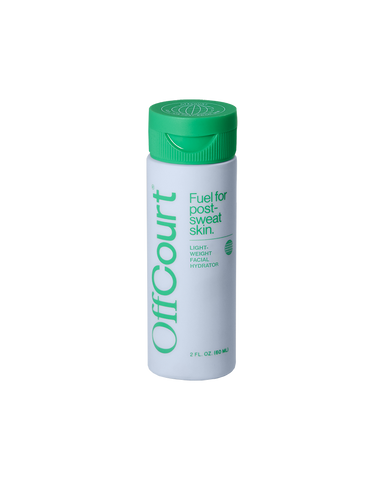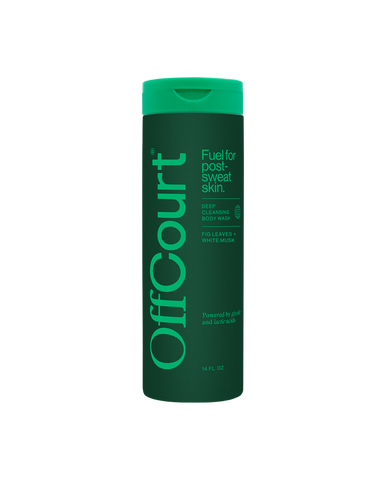7 Signs You Have a Damaged Skin Barrier & How to Fix It
Cracked, itchy, burning, irritated skin – it’s not fun to experience, and it’s even less fun to try and address. If your complexion seems to have gone haywire, a damaged skin barrier may be to blame. Skin barrier damage can happen right under our noses; despite its subtlety, it can cause significant effects. Below, we’ll unpack what your skin barrier does, what a damaged skin barrier means, and how you can keep yours protected.
What is a Skin Barrier? What Does It Do?
The skin is your body’s largest organ. Like all other organs, it serves a practical purpose: to protect the delicate and vital tissue and structure inside your body. But skin doesn’t just keep things in – it also keeps things out.
Your skin is made of not one layer but multiple, each with its own functions that keep your body safe. The top layer, or stratum corneum, is your body’s final defense against the outside world. It’s also what makes up your skin barrier.
Your skin barrier is made of tough skin cells and is slightly acidic, allowing it to fend off pesky invaders like viruses or bacteria. Also part of this layer is a rich profile of lipids, such as fatty acids or ceramides, that keep the rest of your skin hydrated.
Think of your skin cells as bricks and the lipid layer surrounding them as mortar. When your skin barrier is healthy, it forms an impenetrable wall that keeps water in and unwanted guests out.
But when something weakens this wall, its ability to protect the rest of your skin and body suffers.
Things that Impact Your Skin Barrier
Some factors that impact your skin barrier may be difficult to control. Others can be addressed with some simple lifestyle changes.
Examples of things that can affect your skin barrier’s health include:
- Exposure to allergens or pollutants
- Sun damage
- Too little or too much moisture in the air
- Harsh chemicals and soaps
- Some chronic skin conditions, such as psoriasis
- Over-exfoliation or harsh skin care products
- Steroid use
Because a broken skin barrier can affect your general health, it’s important to take it seriously. Caring for your skin means caring for the rest of your body, and protecting your skin barrier doesn’t have to be a hassle.
7 Telltale Signs You Have a Damaged Skin Barrier
A damaged skin barrier leaves you prone to dryness, irritation, and infection. Look out for classic damaged skin barrier signs like those below to identify when your skin may need some TLC.
1. Your skin stings and burns.
If your skin feels tingly or burns, particularly after you apply products, it might be because of a broken skin barrier.
It can be tricky to separate general sensitivity from a broken skin barrier. Typically, though, sudden reactions aren’t a sign of sensitive skin. Likewise, stinging and burning that lingers or flares up in response to all products probably points to skin barrier damage.
2. You notice inflammation and irritation.
Redness, swelling, and pain are all warning signs of a damaged skin barrier. You might notice irritation worsening after using particular products, stepping into the sun, etc.
3. Your skin looks shiny and waxy.
Your skin might appear to be in great shape – it may even look shiny and luminous. But if its tone is dull and waxy rather than soft and smooth, that shininess may be a sign of dehydration rather than health. You can test this by gently touching areas of concern; if they feel dry, your skin barrier might be under attack.
4. You spot dry, patchy, flaky, or peeling spots.
A classic sign of a broken skin barrier is an inability to hold on to moisture. Skin that’s dry and flaky despite your best efforts is one example of how this might manifest. Your skin might also peel away or look patchy.
5. Your acne is worsening or popping up.
If you already experience acne, you might notice it becoming more severe or inflamed. Others might spot new breakouts that emerge over time. Inflammation and irritation from a damaged skin barrier can exacerbate existing breakouts and transform clogged pores into angry blemishes.
6. Your skin seems extra sensitive.
It may seem like nothing you put on your skin seems to help. If products you used to tolerate well suddenly become irritants, or if you have an especially hard time introducing new ones to your routine, your skin barrier may need some attention.
7. Your skin is itchy.
Dry and damaged skin tends to be very itchy. But itching can complicate other symptoms and make them worse.
How to Repair Skin Barrier Damage
Hydration and moderation are the name of the game when it comes to skin barrier repair. You’ll need to help restore the “mortar” surrounding your skin cells and help heal any damage by focusing on a simple, nourishing routine with appropriate skin barrier repair products.
- Keep it Simple. Stop using products with active ingredients, and dial your skin care efforts back to the basics. Stick to a gentle cleanser and quality moisturizer, like OffCourt’s Lightweight Facial Hydrator, to lock hydration into your skin.

Light-Weight Facial Hydrator
- Exfoliate Less. Over-exfoliation is a primary culprit behind a damaged skin barrier. Reduce how often you exfoliate or take a break to help your skin repair itself. Another option is to choose less aggressive exfoliants like those found in OffCourt’s Deep Cleansing Body Wash. Glycolic and lactic acids work to deeply cleanse your pores without drying out your skin or stripping it of its natural oils.

Deep Cleansing Body Wash - Fig Leaves + White Musk
- Take it Slow. Give your skin at least a few weeks of your dialed-back routine before you begin reintroducing active ingredients. There’s no way to speed up your body’s healing process, so take things slow. If you do begin using new products, try them once a week at maximum to see how your skin reacts.
Final Thoughts
A damaged skin barrier can be annoying (and painful) to deal with, but it should heal on its own in time. When in doubt, it’s always a good idea to speak with a dermatologist to get specific advice for your skin. Opting for a gentle and simple skincare routine made of products that won’t further irritate your skin is a great place to start. With enough patience and effort, you can mend your skin barrier and keep it healthy for years to come.
